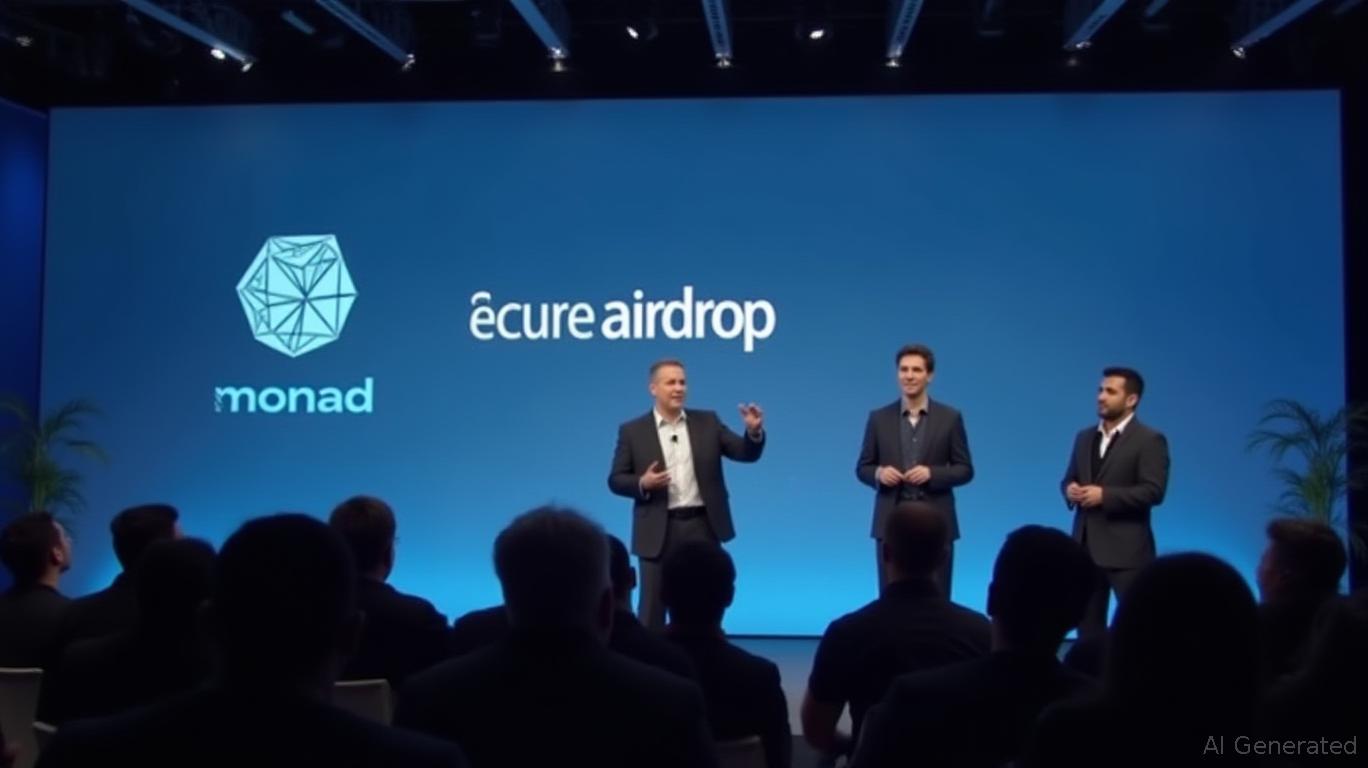GMGN.Ai's 13-Hour MEV Showdown: 729 Users Compensated After Bots Evade Protections
- GMGN.Ai reimbursed 729 users after a 13-hour MEV sandwich attack bypassed its BSC anti-sandwich nodes on October 25, 2024. - Funds were automatically credited by October 26 as co-founder Haze emphasized rapid loss calculations and transparent recovery protocols. - The incident highlights MEV's $1B+ 2024 impact on DeFi, with BSC's public mempools and high throughput making memecoins particularly vulnerable. - Experts urge continuous innovation in anti-MEV tools as attackers adapt tactics like delayed tran
GMGN.Ai, a
This event underscores the ongoing difficulties posed by MEV exploitation in decentralized finance (DeFi). MEV sandwich attacks typically involve bots identifying pending trades and executing transactions both before and after the victim’s order to manipulate prices, often resulting in unfavorable outcomes for users. In this instance, GMGN’s anti-sandwich nodes—intended to prevent such attacks—were circumvented, highlighting the increasing complexity of MEV tactics. Despite existing protections, the incident shows that even platforms with robust defenses can still be susceptible to sophisticated bot activity, as Coinotag noted.

GMGN’s handling of the situation has been commended for its rapid and open approach. Co-founder Haze stated that the team precisely calculated user losses and prioritized prompt compensation, automating the process for a smooth recovery. The platform also recommended that users activate anti-MEV features during trading, which group transactions together to make it harder for bots to detect pending orders. Analysts point out that while these tools are essential, MEV techniques are evolving quickly, necessitating ongoing improvements to defensive measures, as Coinotag reported.
The incident has sparked renewed debate about the wider effects of MEV on DeFi. Blockchain security data shows that MEV-related extractions surpassed $1 billion in 2024 alone, with BSC—favored by memecoin projects—being especially vulnerable due to its high transaction volume and open mempools. GMGN’s experience reflects a broader industry pattern, where even well-protected platforms face operational threats from MEV exploits. Experts such as DeFi analyst ZachXBT emphasize that anti-MEV solutions must keep pace with new attack methods, including delayed transaction bundling, which can leave systems exposed, as highlighted by Coinotag.
For GMGN, this episode highlights the need to balance technological advancement with robust security. While the platform’s quick compensation and openness have strengthened user confidence, the breach also raises concerns about the sufficiency of current anti-MEV strategies. The company has committed to thoroughly investigating the incident and upgrading its node infrastructure. Meanwhile, users are encouraged to adopt additional safeguards, such as tracking gas prices and using private relays, to reduce their vulnerability to MEV threats.
Disclaimer: The content of this article solely reflects the author's opinion and does not represent the platform in any capacity. This article is not intended to serve as a reference for making investment decisions.
You may also like
Japan’s F-150 Move: Strategic Messaging Outweighs Practical Benefits in Trade Negotiations
- Japan displayed Ford F-150 trucks to Trump as symbolic gesture to ease trade tensions and align with U.S. preferences. - $550B investment package includes F-150 imports, praised by Trump but questioned for practicality in Japan's compact infrastructure. - Critics highlight logistical challenges and mismatched consumer preferences, contrasting symbolic value with real-world adoption limits. - Deal aims to strengthen U.S.-Japan ties ahead of Trump-Xi talks, balancing trade concessions with geopolitical lev

Secure Airdrop Unveils Monad’s Community-Led Ecosystem Ambitions
- Monad's airdrop reveals token allocations to eligible participants, aiming to decentralize ownership and reward community engagement. - Eligibility criteria include early platform interaction, governance participation, and transparent verification to ensure fair distribution. - Advanced bot-filtering and KYC protocols safeguard against fraud, emphasizing security as "non-negotiable" for ecosystem trust. - Participants must claim tokens via official channels amid warnings against phishing, aligning with b

Nexchain AI’s Testnet 2.0 Addresses Scalability and Security Challenges to Speed Up Blockchain Integration
- Nexchain AI's Testnet 2.0 offers 100% token bonuses to accelerate mainnet adoption through incentives and enhanced security tools. - The $11M presale (Stage 28) has met 90% of its target, with AI-driven scam detection and MEV prevention features highlighted in the testnet phase. - A hybrid PoS+DAG architecture and real-time testing environment aim to improve scalability, supported by CERTIK security validation. - A $5M airdrop campaign and upcoming November mainnet launch position Nexchain to expand cros

DeProp's $DXBRE Token: Connecting DeFi with Dubai Property Returns
- DeProp launches third $DXBRE token presale stage, enabling $50 investments in Dubai's premium properties via blockchain-based fractional ownership. - Platform combines DeFi incentives with real estate appreciation, distributing 50% rental income to token holders and reinvesting the remaining 50% for portfolio expansion. - $DXBRE targets 6X return potential at $0.064 launch price, leveraging Dubai's 10-15% rental yields while integrating with Aave/Compound for dual-income streams. - 40% token allocation f
